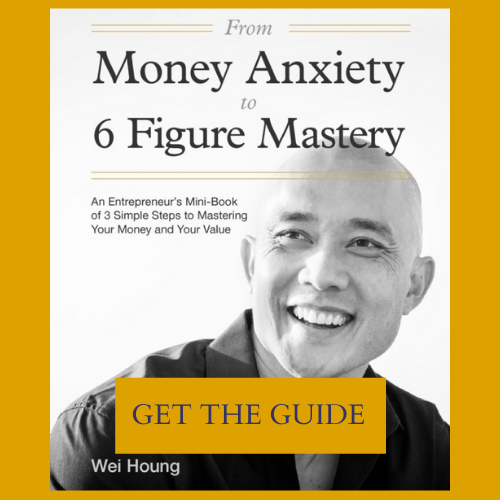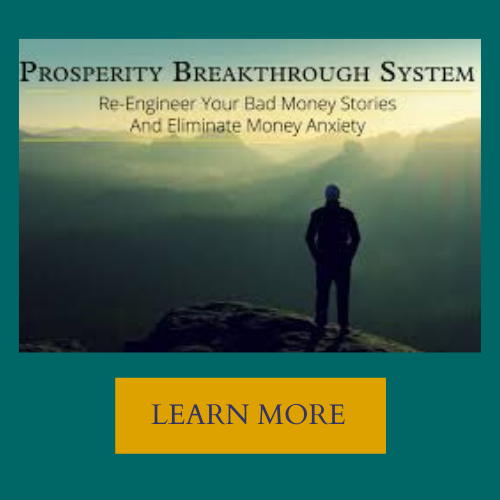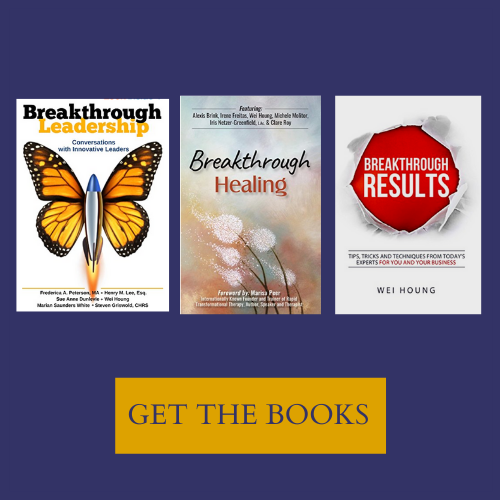In today’s blog post, which is part two of a three-part series, we’re going to continue exploring why it’s important to keep a clear mind during stressful times. In case you didn’t read the last blog post, I’ll give you a quick rundown of what we talked about: why it was important to keep a clear mind during stressful times; the impact stress has on your money flow, and the impacts it has on your relationships and health. We finished with some homework which was basically thinking about two questions:
- what are you specifically stressed about?
- why do you want to have a clear mind during stressful times?
Everybody’s answers to these questions will be different, and when you can define your unique motivation and reason for not being stressed out, it’s actually going to help you keep a sustainable proactive approach to managing stress in a healthy way in your life. So today for part two, we’re going to talk about some of the protocols and processes that will help you determine what you’re stressed out about. We’re going to go over why some methods don’t necessarily work and how our entire system can be impacted when we’re stressed out.
When you’re stressed out, it’s more than just your mind and body that are stressed out; it’s actually FOUR parts of you. Let’s go over them:
THE MENTAL PART: This is our mind. Typically this shows up as running thoughts and excess chatter in the mind.
THE EMOTIONAL PART: This is when our emotions are triggered and they can have a profound impact on our entire system. Not all emotions are bad and some can actually lead to happiness e.g. when you’re working out and feeling good because of the endorphins.
THE ENERGY PART: Being stressed out is draining and when you’re done being stressed out, you feel exhausted right? Stress doesn’t energize you per se, and if it does, then you’ve adapted to that, which is NOT good. It means you have low energy and you’ll need things such as coffee to power through.
THE PHYSICAL PART: When you’re stressed, it often shows up as tightness in the shoulders or stomach.
When these four parts of you are stressed, you need a way to combat it so you can keep a clear mind. You can do this by practicing what our students and clients refer to this as our FOUR BODIES OF PROSPERITY. These four bodies are a way to increase our flow and prosperity. In the context of stress, we address these four parts of our human existence to make sure that if we are going to manage stress, we manage it as fully and as completely as possible without leaving any part out. I’ll summarize each of these four bodies below:
BREATH WORK
This is the first body. Simply breath. Most of us are familiar with the idea of counting to ten and breathing when we’re in a stressful situation. The important thing is not so much the counting, but rather the breath because we literally stop breathing when we’re stressed. I don’t mean holding your breath, but the fact that our breath becomes more and more shallow, which means we’re just sipping enough air and oxygen to survive.
There have been enough studies to show that when people are stressed out, their breathing becomes shallow and they forget to breathe. If we consciously and proactively make ourselves breathe deeper and take deeper breaths, it introduces and increases the level of oxygen in our system to oxidize things that will contribute to physiological challenges. The more you oxidize your system, the better your system is able to manage whatever happens during high stress times.
MEDITATION
Meditation is the second body. Similar to the first body, meditation introduces breath into the body, which bring good energy back into your system. When you oxygenate your body, your energy level increases because now you have air as fuel. This is good for the physical body and the energy part of the body, which then leads to clarity of thought, which will then impact your mental and emotional body. Meditation is also a good way to give your body time to rest. A lot of people might say, “I tried meditation. I can’t meditate.” The thing is that there is no right way to meditate.
Everybody meditates differently. Some people walk, maybe someone else reads, and maybe another person will listen to audio. Some people do better with guided meditations that elicit a lot of emotions will help those that are emotionally centered, whereas others might like movement and do repetitive motions. Some might like writing and will just write out a stream of consciousness.
So if you struggle with meditation, it could be that you’re just meditating in a way that doesn’t align with how you naturally communicate and absorb information. But meditation is extremely important and can have a profound impact in helping you manage that stress better.
JOURNALING
The third body is journaling. Nobody can read your mind and nobody can see what’s going on at that moment, but when you pick up a pencil or a pen and write on a piece of paper, suddenly things can become clearer. I’m a big fan of journaling because it can be anything the mind can formulate and articulate to you in a way that can translate into words or even a picture. What happens in the writing process is that the more you do it, the more that stress gets translated into the paper and then gets locked away. The pressure is relieved.
MOVEMENT
The last body is movement and it’s a great way to handle the physical part of feeling stressed. A lot of people have taken up yoga, jogging, running, lifting. During the pandemic, you can still move by working out at home, putting on a video, or watching a training video on YouTube. People can hold their stress in different parts of the body and if it sticks there long enough, over months and years, it starts to create problems. So the best way to get through the stress is to create movement. Literally get your body moving in all different areas as much as possible.
Another way to clear the mind during high stress is to clean up your diet. There is a tendency for people to emotionally stress eat which leads to poor food choices. When you’re stressed out, your body’s already struggling, and eating bad food just validates the stress. If you turn to alcohol during stressful times, you’re actually numbing out the stress and you’re not solving the problem. You’re not clearing the mind. You may feel like you’re clearing the mind, but you’re actually not addressing the problem. The mind becomes even more cluttered than before.
I want to leave you with a couple of things before the last part of this series. There’s a phrase called dissociate from perception. It’s a methodology to help you dissociate from your perception of what’s causing you stress.
Essentially what you’re doing is that you’re going to be questioning your response to the stressful stimuli, the event, etc. Dissociating from the perception allows you to deconstruct the flow of stress and start to take ownership of the creation of stress.
There are two fundamental questions that I want you to think about:
How do you know to be stressed right now?
The response that you have to stress is a learned response. We develop it by observing others or by being told by others. Ask yourself, “OK, let’s deconstruct this, let’s break this down.” Then you can further deconstruct this by asking this second question:
How do I do it?
How do I do it? What does this mean? This is almost like creating a manual. “Why do I want to create a manual on how to get stressed? I thought the whole point was to manage it?” You’re already stressed, so you might as well look at how you’re doing it so that you can start to interrupt the pattern and break it down so that you can stop running it. Then you can catch yourself before you run through the whole sequence to becoming stressed.
Just doing this process will help you release the emotional charge behind it and will help you release a lot of the stress. This contributes to a clear mind so you can make the best decisions.
You can watch the second video in this series below:
If you have any questions at all, feel free to comment and if you liked this, please subscribe to our channel. Work on thinking about the questions I posed; work on integrating breathing, meditation, journaling, and movement; and then take a look at what’s going on with your food and drink.
Next week, we’ll be finishing up this series on why it’s important to keep a clear mind during stressful times. Take care, be good, and be safe.




